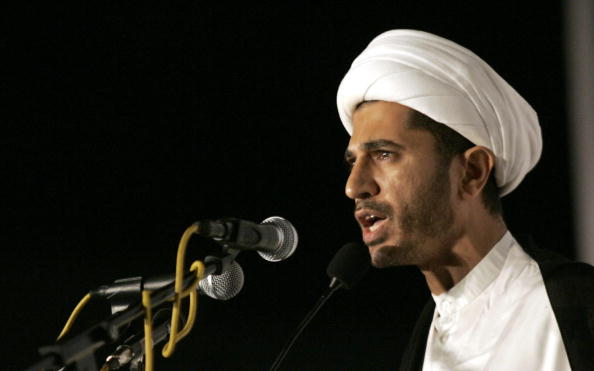Bahrain Crown Prince Must Prove Himself By Actions – Wefaq
Sheikh Ali Salman, leader of the Shi’ite-led group al-Wefaq, says he welcomed Crown Prince Salman al-Khalifa’s appointment.

The leader of Bahrain’s main opposition bloc said on Tuesday there was no guarantee that appointing a reformist crown prince to the cabinet would lead to change in the U.S.-allied Gulf Arab state where talks are under way to end two years of violence.
Sheikh Ali Salman, leader of the Shi’ite-led group al-Wefaq, told Reuters he welcomed Crown Prince Salman al-Khalifa’s appointment but that Bahrainis would have to wait to see if the move heralded any real improvements for them.
“People today look at what is happening on the ground. They appreciate positive words but they don’t give it real value unless it is translated into actions,” he said by telephone from the capital Manama.
Crown Prince Salman, who was named first deputy prime minister on Monday, pushed for talks between government and opposition after pro-democracy protests erupted in Bahrain at the height of the Arab Spring.
The latest attempt at a national dialogue, launched last month, is also seen as largely due to his efforts.
“We hope that having reformists in a decision-making position will translate into reformist steps being taken that will work towards a comprehensive and lasting political solution,” Sheikh Ali said.
He said negotiations were hard going, and that the government had turned down all of the opposition’s proposals for “mechanisms that would ensure a productive dialogue”.
One major gripe is the government’s refusal to bring a representative of the king to the negotiating table, as well as denying requests for proportional representation at the talks, in which Sheikh Ali says the opposition is underrepresented.
“We hope this appointment reflects the government’s will to combat financial and administrative corruption and to deal with the issue of systematic discrimination that has been going on for the last four decades,” he said.
The dialogue should result in reforms to the formation of government and the electoral system, as well as a parliament with greater legislative powers, he said.
